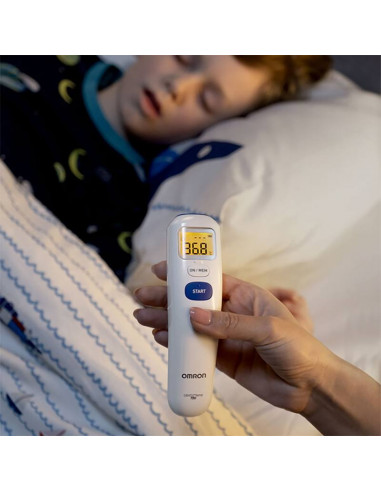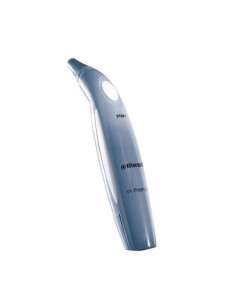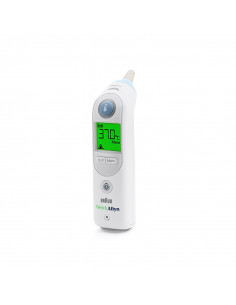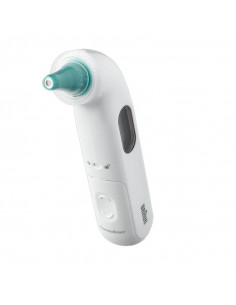Want to buy a fever thermometer?
Find your ideal fever thermometer today
Looking for a reliable fever thermometer? Our range includes top brands such as Braun , Omron , Riester and Welch Allyn , all available directly from stock. Whether you need a digital thermometer, forehead thermometer, infrared thermometer, or ear thermometer, we have it all. Each type is perfect for detecting fever, allowing you to easily and accurately monitor the health of yourself or your loved ones. With our wide selection, finding the perfect thermometer to meet your needs has never been easier.
What are the advantages of a clinical thermometer?
Fast and Accurate Readings: Provides fast and precise temperature readings, allowing you to quickly determine if you or a loved one has a fever. Non-Invasive Measurements: Many models offer non-contact or minimal contact measurements, making temperature measurements comfortable, especially for children. Ease of Use: Designed for simplicity, allowing anyone to measure their temperature accurately with minimal instruction. Versatile Use: Suitable for individuals of all ages, from babies to the elderly. Memory function: Saves previous measurements, allowing you to track temperature fluctuations over time. Fever alarm: Some models have a visual or audible alarm to indicate when the measured temperature indicates a fever. Durable and Reliable: Made by trusted manufacturers, which means you can count on the durability and reliability of your clinical thermometer. Easy to Clean: Designed for easy cleaning, promoting hygiene when measuring temperatures on different people.
Order a fever thermometer
What is a reliable clinical thermometer?
In today's health-centric world, it is essential to have the right tools at hand to monitor your well-being. A clinical thermometer is such an indispensable instrument in every household. Whether you're a parent who closely monitors your child's body temperature or someone who monitors their own health status, choosing a reliable clinical thermometer can make a world of difference.
A good clinical thermometer combines ease of use with accuracy and reliability. Advanced functions such as a memory function, which stores previous measurements, and a clearly readable LCD display contribute to ease of use. Depending on your personal preference and specific needs, you can choose between different types of thermometers, including rectal, oral, and ear thermometers. Specially designed models for children are also available, with features specifically tailored to the comfort and safety of the youngest users.
When choosing a clinical thermometer, it is crucial to go for a model that is known for its reliability and accuracy. Brands such as Braun , with their Thermoscan 7 IRT6520, are known for their advanced technologies that ensure precise temperature measurements. Other reliable options on the market include the Thermoval Rapid, known for its fast and accurate readings, and the Veroval 2-in-1 thermometer, which can be used for both the ear and forehead, making it a versatile choice for families .
The importance of having a reliable clinical thermometer at home cannot be underestimated. Not only does it help quickly detect fever, a key symptom of many diseases, but it also allows you to monitor the effectiveness of fever-reducing medications and make decisions about when to seek medical attention. In addition, the ability to save previous measurements and track trends provides valuable insights into the health development of yourself or your loved ones.
Frequently Asked Questions
Place the tip of the thermometer under the tongue, in the armpit or in the rectum (depending on the model and instructions for use). Wait until the beep or other signal indicates that the measurement is complete, and then read the temperature.
A forehead thermometer measures the temperature through the skin on the forehead, often with infrared technology for a contactless measurement. An ear thermometer measures the temperature in the ear canal. Both are fast and accurate, but the choice depends on personal preference and ease of use.
No, clinical thermometers are specifically designed to measure human body temperature and are not accurate for measuring objects or environmental temperatures.
Yes, with some thermometers, such as ear thermometers, it is recommended to use disposable protective covers to prevent cross-contamination and maintain hygiene.
You can find the disposable tips in the related products of a thermometer.
A normal body temperature is usually between 36.5°C and 37.5°C. Temperatures above 38°C are generally considered a fever.










